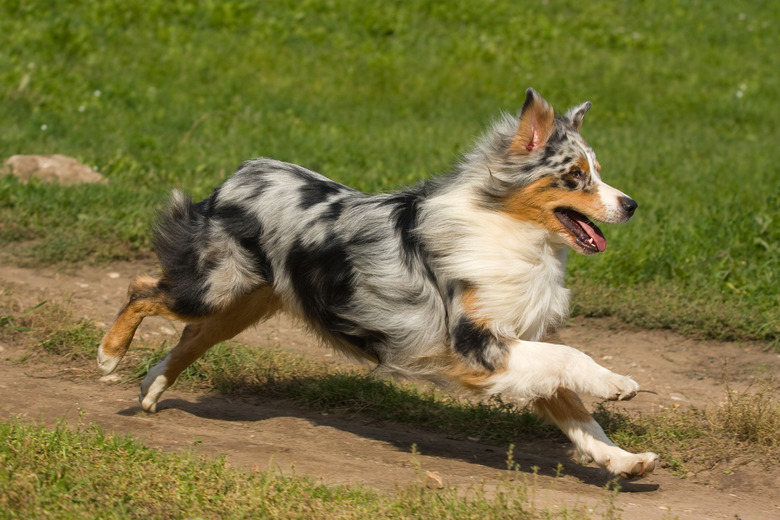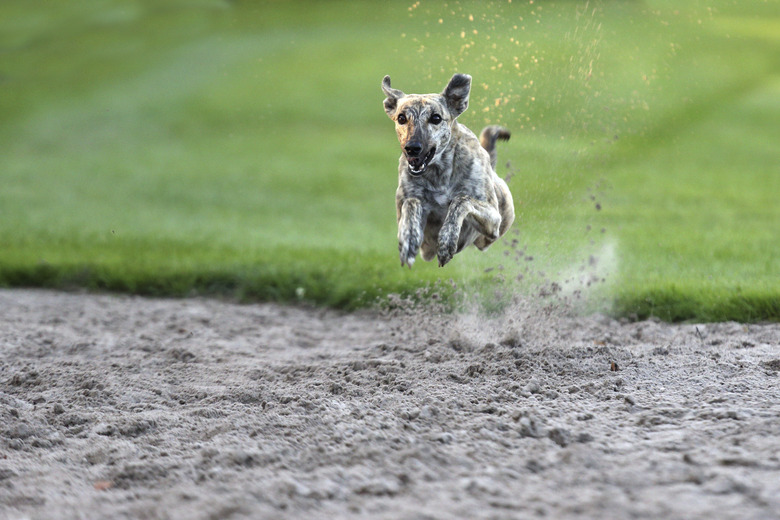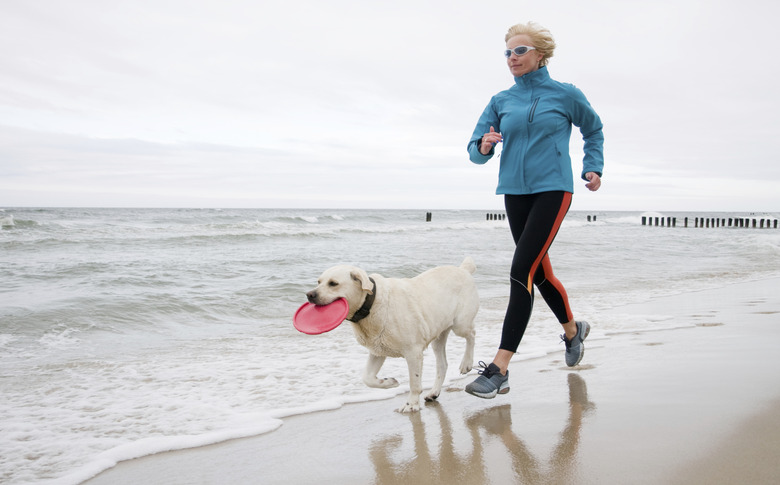How Fast Can Dogs Run?
Dogs descended from some of the greatest animal runners on the planet. Today, many domestic dog breeds can run even faster than their wolf ancestors. How fast are dogs today, though? While wolves top out at about 38 miles per hour and can maintain this speed only for short distances, some dogs run up to 20 percent faster than that and keep such a pace for relatively long distances. As a comparison, the fastest humans on Earth may attain speeds of 23 miles per hour.
Fastest dog breeds
Fastest dog breeds
Most authorities consider the greyhound to be the world's fastest dog breed. Breeds such as Salukis, Afghan hounds, vizslas, border collies, and whippets, falling shortly behind but are among the top 20 fastest dog breeds. Purposely bred for speed, greyhounds have been clocked at speeds of up to 45 mph. The University of Minnesota College of Veterinary Medicine attributes the greyhound's running speed a rotatory gallop, a sprinter-friendly gait style in which the front left leg touches the ground first, followed by the front right, then the back right, then the back left. Nevertheless, many other lightweight, fast breeds are nearly as fast as greyhounds are and reach speeds between 35 and 40 mph.
How fast are dogs when endurance is a factor?
How fast are dogs when endurance is a factor?
What's a dog's running speed over long distances? It depends on the breed. Siberian huskies and a few other breeds and mixed lineages are some of the world's most incredible endurance athletes. Fueled by as many as 12,000 calories per day, these 50-pound dogs are capable of sustaining speeds of 12 mph for more than six hours when pulling a sled. Obviously, when not pulling a 200-pound sled, huskies and other sled dogs are much faster than this — although not as fast as greyhounds and other fleet-footed dogs.
Slower dog breeds
Slower dog breeds
While all dogs can run, some struggle to attain high speeds or cover lengthy distances. Most such dogs have poorly built bodies for running. They lack the narrow waist, deep chest, and long noses commonly associated with speedy breeds. Because their noses are very short, bulldogs, pugs, and similarly built breeds are prone to overheating when they run long distances.
Breeds for runners: Dog running speed isn't the only factor
Breeds for runners: Dog running speed isn't the only factor
Because of their running talents, dogs make excellent companions for walkers, joggers, and runners. However, just as different human athletes prefer different training conditions, different dog breeds excel at different kinds of jogs. When selecting a four-legged running buddy, you'll want to ask more than "how fast are dogs?" You'll also want to consider what your running route looks and feels like, as dog running speed isn't the only thing that will affect your workout. For example, if you live in a cold climate and must contend with snow on your morning run, opt for a Siberian husky, as the breed excels in the snow. Dobermans have short hair and do well in warmer temperatures.
Lightweight dogs with strong hips and legs, such as Weimaraners and German shorthaired pointers, are great for those who run long distances. Alternatively, if you enjoy short, brisk runs to get your heart pumping, select a muscular, lean breed, such as a greyhound, American pit bull terrier, or beagle. However, mixed breed dogs also may excel at running, particularly if they have a medium build and energetic personality.
When running with a dog, be sure to stay safe. Ensure that your dog remains hydrated, and stop if the pup seems too tired. Follow the rules of the road, and keep your dog leashed at all times.


